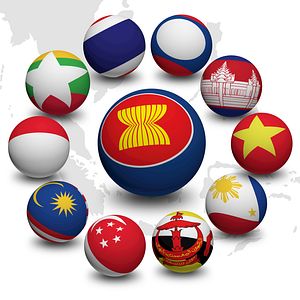Russia’s economic minister said last week that Southeast Asian countries are moving closer to creating a free trade zone between the Association of Southeast Asian Nations (ASEAN) and the Eurasian Economic Union (EEU).
At the ASEAN-Russia summit in Sochi back in May, which commemorated two decades of their dialogue partnership, Southeast Asian countries had agreed to take a closer look at the EEU – a grouping comprising Russia along with Armenia, Belarus, Kazakhstan, and Kyrgyzstan which came into force just last January. ASEAN and EEU member countries are estimated to have a combined GDP of $3.5 trillion and a combined population of over 700 million.
On August 5, Russian media outlets quoted Russian Minister of Economic Development Alexei Ulyukayev as saying that an agreement had been reached at the ministerial level to conduct a feasibility study on a free trade zone between the EEU and ASEAN, and that this could become a reality as early as within three years. His remarks came after a meeting with his Southeast Asian counterparts.
“Today, we have agreed — at the ministerial level — to begin practical work,” Ulyukayev said.
Despite the sensationalist headlines in some media outlets, this vision is still quite far from becoming a reality for now. As of now, within ASEAN, only Vietnam has ratified a free trade agreement with the EEU, which was finalized in May this year. That said, other Southeast Asian countries have also expressed varying degrees of interest, including Singapore, the region’s most competitive economy.
Even Ulyukayev was quite frank about the timeline for its realization, saying that it might need at least three years to come to fruition. He estimated that the feasibility study would last approximately a year, followed by negotiations that “may last for some time.”
Though his prediction was that this would last two or three years, it is quite common for such talks to drag on for years beyond their intended date of completion due to a few laggards within the wide range of actors involved.
Ulyukayev also admitted that some ASEAN states were “insufficiently informed” as to how the interactions within the EEU works, a shortcoming that he hoped would be resolved once joint work begins. Given the fact that the EEU is itself a rather new institution, that should come as no surprise. Moscow’s hope, however, is that such issues will be resolved as Southeast Asian states become more invested in the idea over time.

































